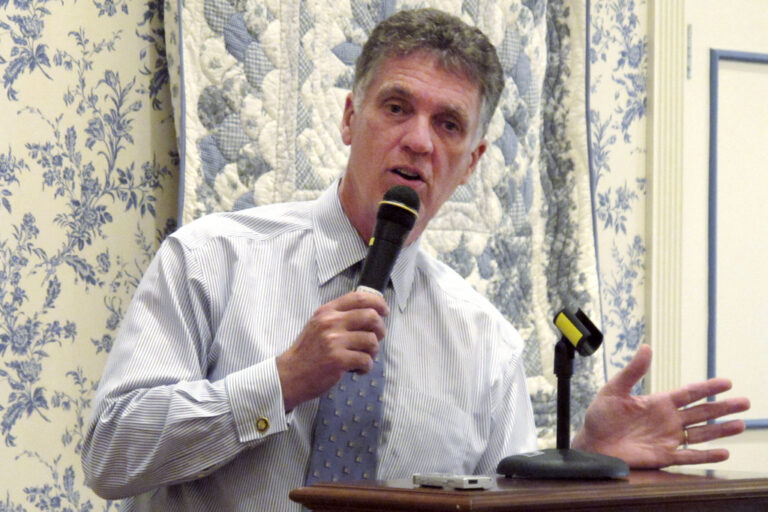Breaking: White House Withdraws CDC Director Pick Amid Controversy
Is the appointment of a public health official a matter of public trust, or a political chess game? The recent withdrawal of Dave Weldon's nomination to lead the Centers for Disease Control and Prevention (CDC) throws the spotlight on precisely these questions, igniting a firestorm of debate about the intersection of politics, science, and public health.
The White House, on a Thursday in late March, decided to pull the plug on the nomination of Dr. Dave Weldon, a former Republican congressman and a physician, just hours before his scheduled confirmation hearing before a Senate committee. The move sent ripples of surprise and speculation throughout Washington and beyond. Weldon, known for his skepticism of vaccines, was President Trump's initial choice to head the CDC, the nation's leading public health institute. His nomination had already sparked controversy, given his views on vaccines, which raised concerns about his ability to lead an agency at the forefront of protecting public health.
The reasons behind the withdrawal remain shrouded in a degree of mystery. The White House did not issue a formal statement explaining the decision, nor did President Trump address the matter during a press conference held that Thursday afternoon. This silence has fueled further speculation, with sources close to the Senate Health Committee and other familiar individuals suggesting varying reasons for the about-face. Some sources hinted at concerns over Weldon's past statements and views regarding vaccines, while others speculated about the potential for political fallout if his nomination went forward.
This sudden shift in the appointment process has raised serious questions about the criteria and considerations that influence such crucial appointments. Specifically, the case prompts us to question how the President makes such important decisions when it comes to filling positions of influence like the CDC. Moreover, this raises the question, what factors, besides the candidate's professional background, might factor into these significant appointments? Was this a matter of pure politics, or were there other factors at play, and if so, what were they? The implications are significant, especially for an agency like the CDC, which plays a crucial role in protecting public health.
The controversy surrounding Weldon's nomination provides a window into the complex dynamics between the scientific community, the political sphere, and the public's health. Weldon's views on vaccines, which align with skepticism about the efficacy and safety of certain vaccines, had immediately sparked criticism from public health advocates. Critics worried that his leadership could undermine public confidence in vaccination programs, potentially leading to decreased vaccination rates and increased vulnerability to preventable diseases.
The opposition to Weldon's nomination wasn't limited to public health experts. Prominent figures within the scientific community also expressed strong concerns, highlighting the importance of having a CDC director who is firmly committed to the principles of science and evidence-based decision-making. The debate underscored the need for public health officials to be free from political interference and able to make unbiased decisions based on the best available scientific evidence. The episode serves as a reminder of the essential role that science plays in public health policy, and it highlights the need for leadership that values scientific integrity.
The timing of the withdrawal, just hours before Weldon was scheduled to testify before the Senate committee, added another layer of intrigue to the situation. It suggested a degree of urgency and perhaps a desire to avoid a potentially damaging public hearing. In the ever-changing world of politics, the eleventh-hour nature of the withdrawal spoke volumes about the complexities of such high-profile appointments. It also highlighted the critical role the Senate plays in the confirmation process, serving as a critical check on presidential power.
The appointment of the CDC director is a matter of national importance, impacting everything from disease prevention and outbreak response to the health of children and the elderly. The director serves as a key voice in public health, guiding the agencys direction and communicating vital information to the public. Given the pivotal position the CDC plays, the selection process demands careful consideration, balancing professional qualifications with political alignment and the candidate's ability to lead and inspire confidence.
The White House's decision to withdraw Weldon's nomination, whether it was a matter of political maneuvering or a reflection of concerns about his qualifications, served as a stark reminder of the power of politics in a public health arena. The ramifications extend beyond any individual nominee, touching upon the integrity of public health agencies and the well-being of the country.
In the wake of the withdrawal, attention has turned to the question of who will now lead the CDC. President Trump subsequently nominated Susan Monarez to head the agency, though its unclear if Monarez is truly the final choice.
| Full Name: | David Weldon |
| Date of Birth: | August 31, 1953 |
| Place of Birth: | New York City, New York |
| Education: |
|
| Political Affiliation: | Republican |
| Career: |
|
| Key Legislative Interests: | Healthcare, particularly medical research and reform, and foreign policy |
| Notable Positions: |
|
| Views on Vaccines: | Skeptic of certain vaccines and their safety |
| Controversies: |
|
| Reference: | Congressional Biography |
This is not an isolated instance. The CDC and its leadership have often been subject to intense scrutiny and political pressure. A former congressmans comment, the president is a busy man doing good work for our nation, and the last thing he needs is a controversy about CDC, speaks to the political sensitivity surrounding the agency. The CDC is the nation's primary public health protection agency, and its influence on the population is vast. Therefore, all choices made by the agency are put under the microscope.
The nomination of Dr. Weldon and its subsequent withdrawal have brought to the forefront the essential questions of what constitutes the ideal leader for the CDC. Should the director be chosen on their scientific expertise, experience in public health, or political alignment with the current administration? The debate will continue, because the answer has serious consequences for both the agency and the public it serves. The CDCs leadership must be someone who can be above politics and base all of their decisions on public health, so the agency must be able to maintain its integrity and credibility.
The incident involving Weldon's nomination highlighted the need for an independent and science-driven CDC director. The person should possess the scientific expertise and management skills to lead the agency. He or she should be someone who can provide trustworthy information to the public about crucial health issues. The director must also possess the ability to communicate effectively with the public, healthcare providers, and policymakers.
The controversy surrounding Weldons withdrawal has underscored the necessity of a clear, transparent, and unbiased process for selecting the CDC director. This means that the selection process should prioritize scientific qualifications, experience in public health, and a demonstrated commitment to evidence-based decision-making.
It is paramount that the CDC's leadership should be appointed in a way that protects the integrity of the agency. This, however, has to be balanced against the realities of politics. The episode serves as a reminder of the delicate balance that must be maintained between scientific integrity, political considerations, and the public good. The country hopes that future appointments of the CDC director will be driven by the need to safeguard public health.
Ultimately, the events surrounding the Weldon nomination, and its subsequent withdrawal, are a case study in the intricacies and high stakes of public health leadership. The decision reminds us that the appointment of a director of the CDC is more than a simple administrative decision. It is a choice about the countrys commitment to evidence-based science, independent expertise, and the well-being of the populace. It is a reminder that scientific agencies are not immune to the vagaries of politics.

David Weldon, Trump's Pick to Lead CDC, Suddenly Withdrawn

Who is David Weldon? Trump’s CDC director pick withdrawn by White House

Why Trump’s CDC pick is raising concern in the public health community